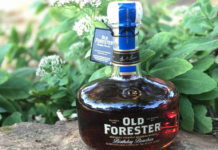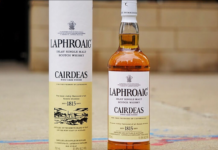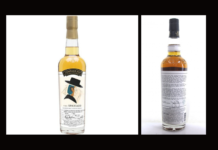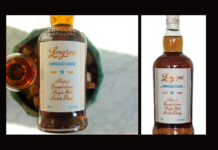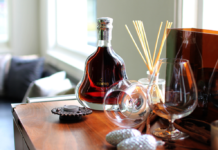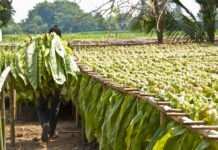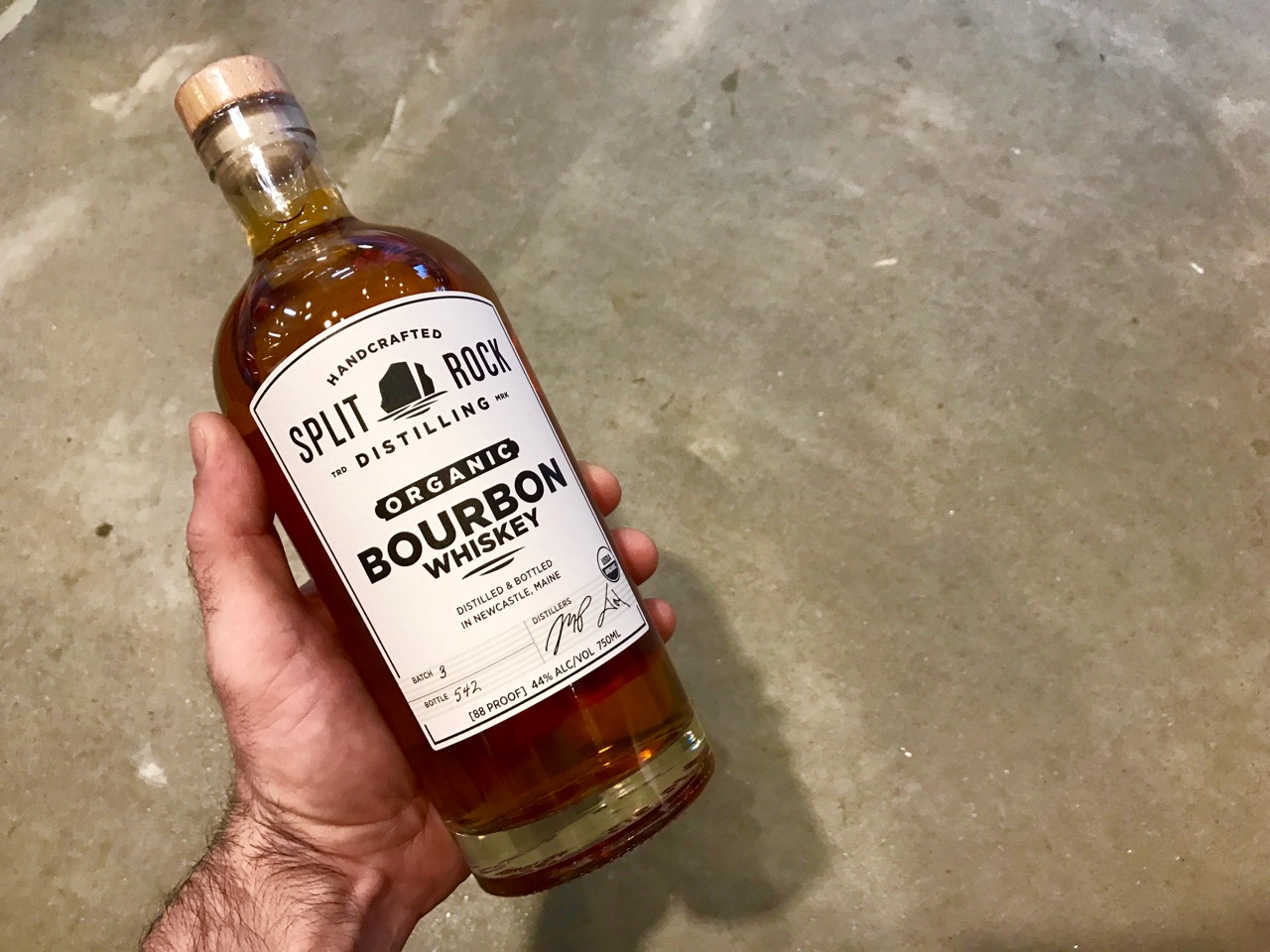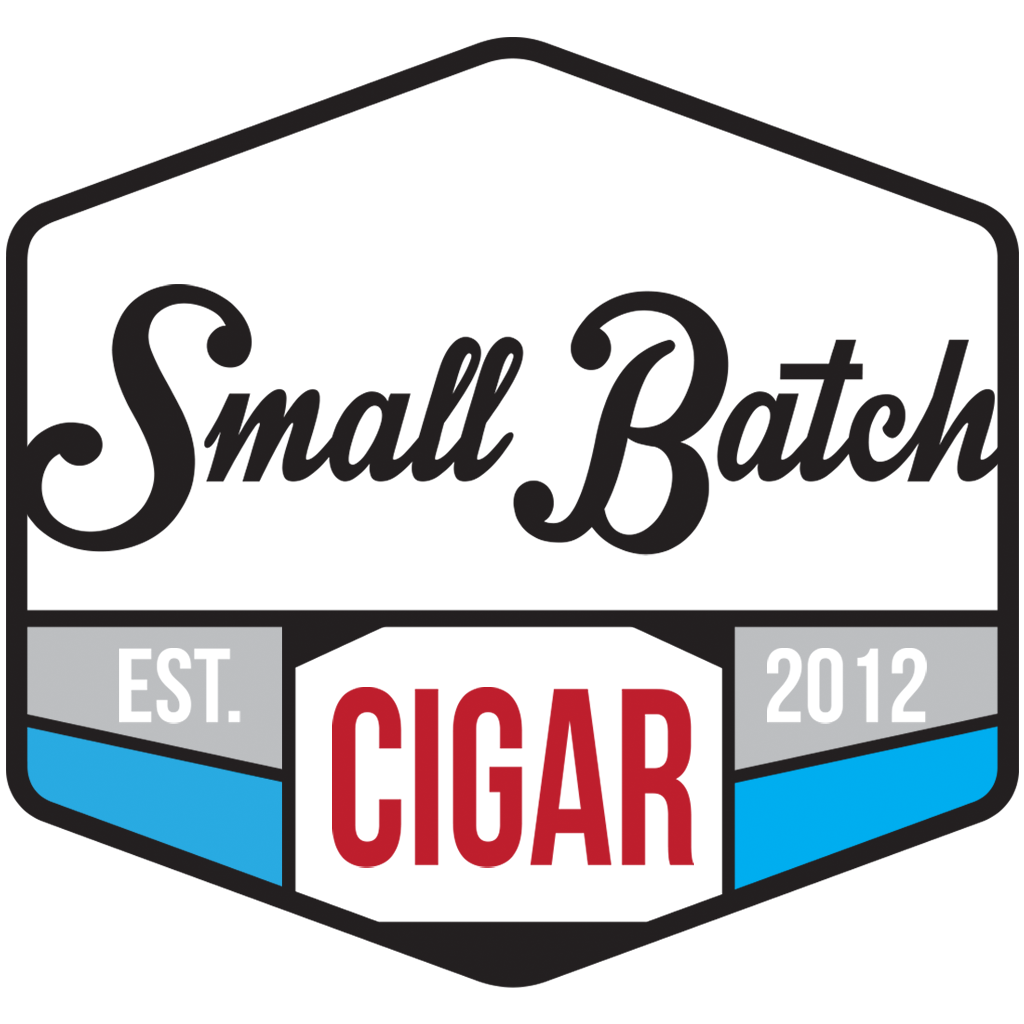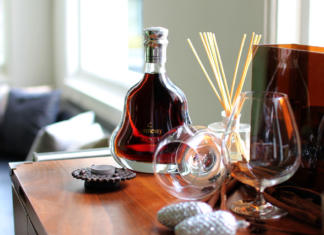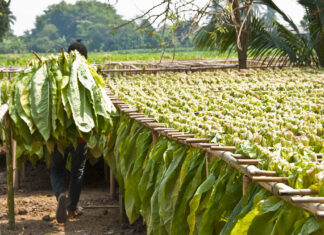We named Split Rock Distillery for a dirt road we travel often—the shortcut between our two homes. It’s the only shortcut we’ve ever taken to bring you Maine’s first organic spirits.
When we founded Split Rock, we promised ourselves we would handcraft our spirits the right way. That meant the long way: authentic, small batch grain to glass, selling no spirit not our own.
Tastethedram spoke to the co-founder Topher Mallory about what it takes to make whiskey in Maine.
Please tell me how the Split Rock distillery came about?
TM: Two good friends, Matt Page and I (Topher Mallory), both being creators and artisans, had a desire to make a product responsibly from raw materials. We found ourselves more than once talking about this over a glass of Bourbon, the rest is history… In Maine, there were very few distilleries at the time we decided to embark on making spirits. And nationally, at the time there were even fewer trying to distill with 100% organic grains resulting in a 100% organic spirit lineup.
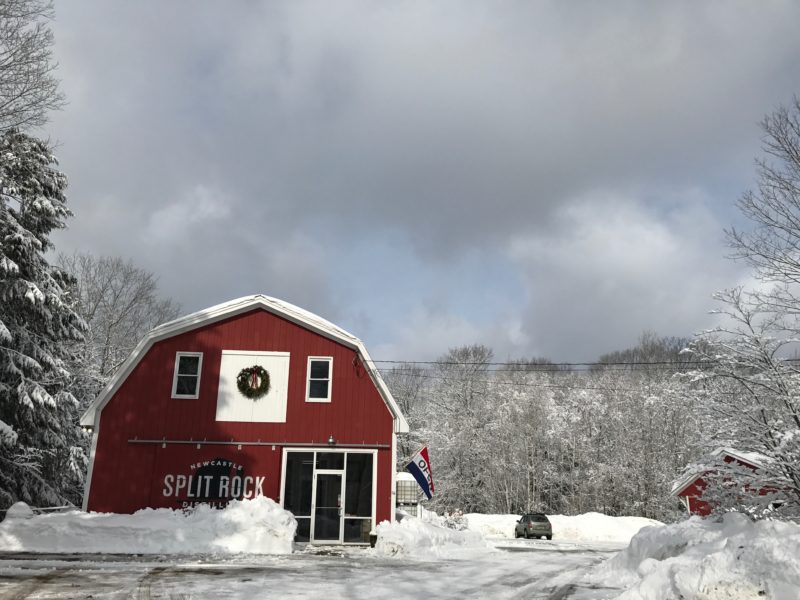 What was your vision?
What was your vision?
TM: A completely organic distillery, producing spirits designed to be enjoyable neat, while still lending well to the mixologist of course! The process is transparent, we want our customers and distillery visitors to be able to know everything about what they are tasting and consuming, and experience the making of the spirits with us (there is literally a wall of glass between the production floor and the tasting room, you can always see what we are up to). Finally, we want to maintain as close to a zero-waste process as we are capable of, we donate all of our spent grains to the same New England organic farming economy that they originated from, 100% of our spent mash is currently being used as organic feed and compost within miles of the distillery!
What have been the main challenges involved in setting up a new distillery?
TM: The biggest challenges today for us now that we are up and running are self-imposed, we want to continually improve our spirits and reduce our environmental impacts.
From day 1 through to opening the distillery doors to the public, was an intense multi-year journey that required a level of dedication I am not sure we even knew we had. The challenges at the federal, state and local levels for approval were a significant investment of time and energy. The business hurdles restoring our barn, retrofitting the distillery with equipment, and finally lining up organic production logistics, were nothing short of intense… And once everything was in place, we had to muster the energy to work harder than we have ever worked before. Our take on ‘grain to glass’ distilling is hands on, we did it all DIY!
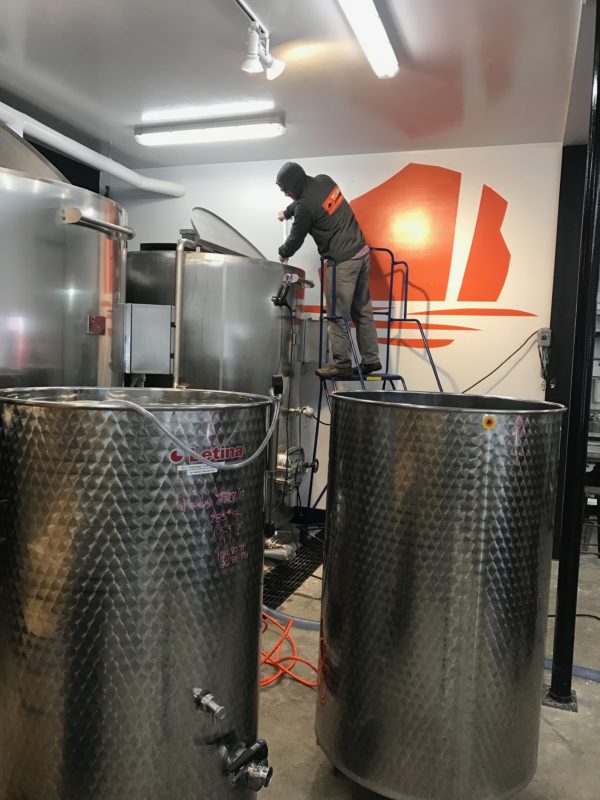 And what has been the part you’ve enjoyed most?
And what has been the part you’ve enjoyed most?
TM: The relationships we have created with our community and our customers! Matt and I still (and probably always will) work in the tasting room. We really dig the feedback, the conversation, the reactions and the excitement our consumers have for handcrafted spirits!
What whiskey expressions are you currently producing?
TM: We currently have 2, 4-grain Whiskeys available, an Organic Bourbon Whiskey that is aged in 5-gallon barrels and bottled at 88 proof, and an Organic White Whiskey bottled at 100 proof.
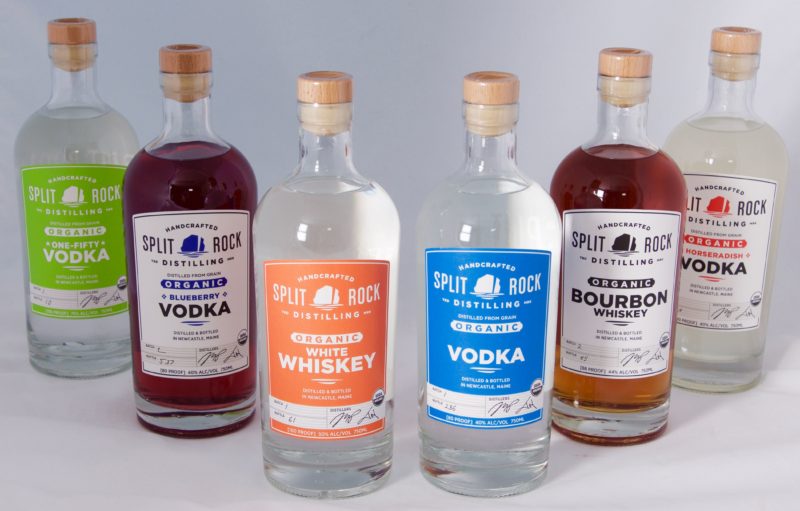 Do you source the ingredients locally?
Do you source the ingredients locally?
TM: Yes! All of our grains are from New England, and we are always trying to find them as close to the distillery as possible. For example, right now all of our botanicals, fruits, and roots are from Maine, and some of them are from within 50 miles of the distillery. Organic is not as readily available, so we do have some unique challenges to our distillery with supply and certification.
Does the geographic location and the climate affect the maturation process?
TM: Maine’s cold winters and hot summers are putting their own spin on our organic Bourbon with every passing season. We look forward to possibly experimenting with an uninsulated rickhouse in the future to get full the seasonal effect!
What are the most important factors affecting whiskey distillation, How do you ensure that these are carefully balanced to produce a consistently high-quality product?
TM: For us the importance in not just distillation, but also in fermentation and in maturation, which broadens the question a little. In the fermentation, we start with a food grade certified organic non-GMO grain. Each fermentation is treated scientifically, always with a keen eye on the continuity of flavor in our distiller’s beer. Maintaining a precise and consistent environment for our yeast is key.
For Distillation, in the case of our whiskey it is a two-run process, first, we harvest low wines from our pot still, then we refine them using the same pot still in combination with our whiskey column. Distillation is a steam based process at Split Rock, which again helps with continuity. The important factor or skill is a marriage of technical distillation understanding with sensory awareness. Distilling with a modern hybrid still gives you a ton of options, but you have to know what you are trying to create.
And finally, in Maturation, we continue to focus on the environment, keeping all of our barrels on the same ground floor. So back to the question, in distillation, the most important factor for us is being able to keep the process identical run after run, but as the whole process is important, without quality grains at the start in our ferment or long term consistency with maturation environment it would all be for naught.
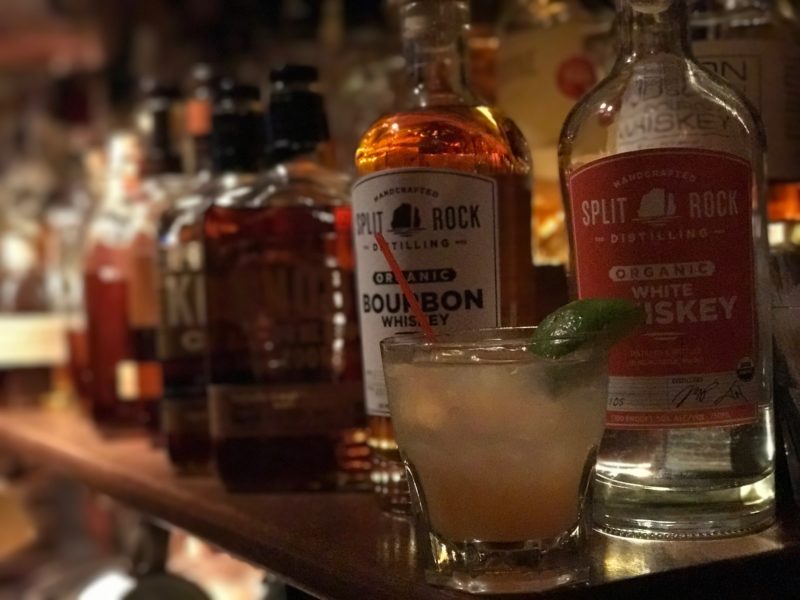 What led you to start your own business?
What led you to start your own business?
TM: We wanted to create something, and design it from the question ‘Why’. Passion, Organic, Handcrafted, and Community, were what led us to start our own distillery here in midcoast Maine.
What is your definition of an American Single Malt Whiskey?
TM: We do not currently make an American Single Malt… Not sure we can really weigh in! But to us, single malt Whiskey, is a single malt, a single distillation, maturation and no blending before bottling. The expression of a single batch of grain from start to finish. Currently, all of our batches of Whiskey, and Vodka, hold true to this definition of a single batch of grains start to finish!
Walk us through the distillation process. From grain to glass? Is there a flavor profile you’re looking for before bottling the whiskey
TM: It is easy to do in the distillery because it is literally all happening in roughly 1800 sq ft of space that everyone can see from the tasting room bar! So as you are enjoying a ‘glass’ of whiskey, you can see the ‘grain’ within feet of you! Our grains are delivered weekly to ensure freshness, almost exclusively from Vermont. We ferment and mash our grains in two large identical mashtuns.
Grains are loaded by hand, one bag at a time. Our mashing process takes over 10 hours and usually results in a week long fermentation. We distill ‘on the grain’ (we don’t lauter) , to help impart as much of the food grade organic grains signature as we can! Our first distillation or stripping run yields low wines that are reloaded into the still for our spirits run. Our hybrid still is outfitted with a Whiskey column, Vodka Column, and Gin basket, although our space is small, we have versatility and make 100% of our products under the same roof.
After distillation, maturation, proofing and filtering all take place before bottling in the distillery. Depending on what day you visit the distillery, you can literally experience every aspect of the grain to glass process first hand!
Describe your distillery in 3 words:
TM: How about 3 words for each of the aspects of our business, we think of our business as one part experience, one part sustainability and one part the spirits.
Authentic Community Experience, Supporting Local Organic, Consistent Smooth Flavors.
How do you expand your whiskey nationally? Any plans to do so?
TM: Great question! We have been in business for a few years building our inventory and product line, but only had our tasting room open and distribution in Maine underway for the last 9 months, so the short answer is slowly. Our intention is to eventually distribute to additional states, right now we are fixated on maintaining the quality of our product and each individual consumer relationship.
Anything else you’d like to share with our readers?
TM: Our doors open at high noon most days, with tours and tasting available daily! If you are traveling up the Maine coast we are hard to miss, a big red barn with a bold orange sign, located right off Coastal Route 1 in Newcastle, Maine!





